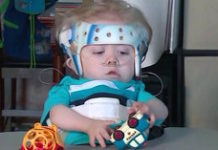A cancer diagnosis can be draining mentally, physically, and financially. A new study finds that it may also lead to an unstable living situation.
Researchers from the Medical College of Georgia (MCG) at Augusta University looked at the rates of housing insecurity among cancer survivors, finding that about 1 in 6 struggle with issues like being able to afford their rent or mortgage or having to move more frequently. The findings, published in the Journal of Cancer Policy, mean that many patients may have a harder time managing their care.

The authors write, “Cancer patients and cancer survivors may struggle to pay for housing or fall behind on their monthly bills to pay for out-of-pocket medical costs. Housing insecurity increases the likelihood of poorer health and decreased access to health care. The financial burden of medical care as a cause of poorer health outcomes is worsened by the inability to afford housing.”
The team determined how prevalent this issue is by using data from the 2017 Behavioral Risk Factor Surveillance System, a Centers for Disease Control and Prevention database with information on health-related risk behaviors, chronic health conditions, and use of preventive services. With this, they discovered that about 16.6% of cancer survivors face a moderate or increased level of housing insecurity. The numbers were higher in the Black community, as well as in survivors with lower incomes and lower educational attainment.

Struggles like these often lead patients to focus on more immediate needs and less on their health care.
Dr. Steven Coughlin, first author and interim chief of the Division of Epidemiology in the MCG Department of Population Health Sciences, says, “People often struggle to get into health care. Their priority is putting food on the table and making sure the rent is paid and they can get behind on bills, which can be overwhelming. These are important social determinants of health. Housing and food insecurity increase the likelihood that you’ll show up at the emergency room for care and not meet your regular provider appointments.”
Coughlin notes that they’ve seen similar struggles in patients at the Georgia Cancer Center, where a study on blood cancer patients and survivors found that about 9% reported housing insecurity issues.

The research team says that to address the issue, health care providers should institute screening programs to see if patients are struggling to afford housing and food. For those who are, providers should be ready to refer them to agencies or organizations that can help. The team says that steps like this could be crucial in ensuring quality care for cancer survivors.
![]()
Provide Mammograms
Support those fighting Breast Cancer at The Breast Cancer Site for free! →
Whizzco Source






